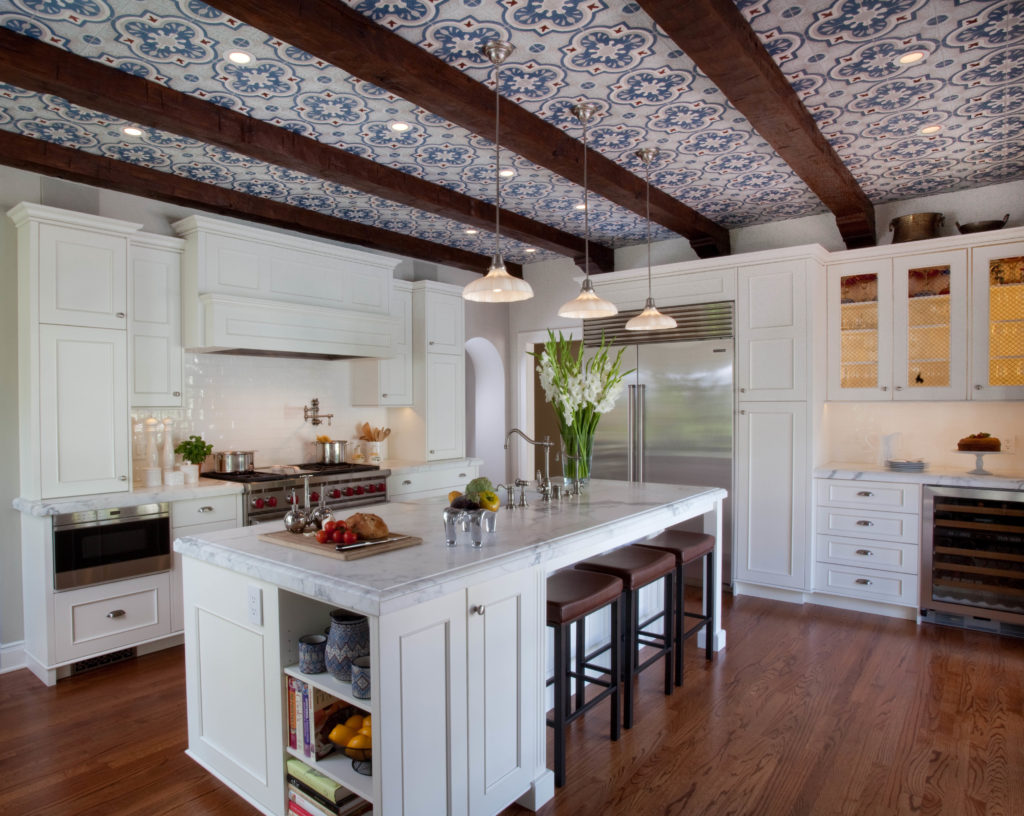Posts Tagged ‘countertop’
HEART OF A HOME
Modernizing Your Historic Home Kitchen Without Compromise
Often referred to as the heart of the home, the kitchen is a space that holds a great deal of value to many people. It’s a place to nourish your family, catch up with a neighbor over coffee, or even a sanctuary where you get to try that recipe you have been meaning to experiment with. Regardless of how you find personal fulfillment in this space, when it comes to Historic Homes, the original kitchen may not afford you the modern conveniences we all have come to expect. The words “modern” and “historic” home do not seem to align and the word “Modern” is often a scary one for people that have a higher degree of attraction to stylized or referential architecture.
When we speak of modernizing a historic home, we are referring less to the stye and more to the quality of life and use of space. Often in Historic Homes the kitchens are fairly small, counter spaces are shallow, and storage space is limited. These are all limitations that prohibit people from using kitchens with the more modern sensibilities of today. Even with these limitations, we find that it is possible to upgrade historic kitchen amenities while respecting the architecture and interior language of the home. We refer to the design of the home as the “language” because not every space fits into a neatly wrapped style of architecture. What “feeling” does the existing language evoke? This feeling is what we are looking to extract when it comes to the design of a new space. A new space does not necessarily need to be a direct replica of what exists, but it should instead, resonate with the rest of the home and become a natural extension of the home.
So how do we achieve this in a historic home? First, start by consolidating space. Typically historic homes will have a series of compartmentalized spaces, most often associated with the kitchen but partitioned from it. We typically start by considering the removal of these partitions and joining the spaces. The most prominent challenge arises when a design must conform with the existing window openings. As a historically designated structure, you are not permitted to change or alter the existing windows and openings.
Second, we consider who you are and what you needs will be. Before we put “pencil to paper” to start a new design, we issue a design questionnaire tailored to you and specific to your project. This will aid us in understanding how you live in your space and takes probable measures for aging in place. For example, a young family with specific needs for their children may not have the same needs 10 years down the line. We evaluate these possibilities as a team, with you, to develop the likely long-term goals.
Third, We consider storage needs. Dependent on the era of your home, long banks of cabinets may be appropriate but in some cases you may need to consider a cabinet design that emulates stand alone pieces which appear more like furniture. The key is to satisfy your family’s storage needs. Whether you consider yourself more of a cook or more of a baker, you need a space for your tools, pot and pans, utensils, and small appliances.
Fourth, we consider the finishes. All finishes, whether they be cabinet finish, counter material, backsplash, or hardware, need to be considered carefully. For example if you have a purist philosophy and want to stay true to the era of your home, this simply may not be a practical point of view in todays environments. Note, that If your home is pre 1900’s the typical counter material used was wood. Used in specific zones, wood is practical, but with the advent of newer materials, material consciousness has evolved away from wood due to sanitary concerns. Countertop material options have evolved over the years from wood to tiles, plastic laminates, stone, and to the current trend of engineered quartz. Countertop material selection in particular, is where some artistic license is needed to specify a material choice that continues to align with the historic nature of the design, but takes into account modern concerns.
We have identified some of the primary considerations that we focus on when embarking on an historic remodel with you. The list of considerations grows from there as each historic property and each one of our clients are unique unto themselves. So please, tell us, what does your dream kitchen entail?

